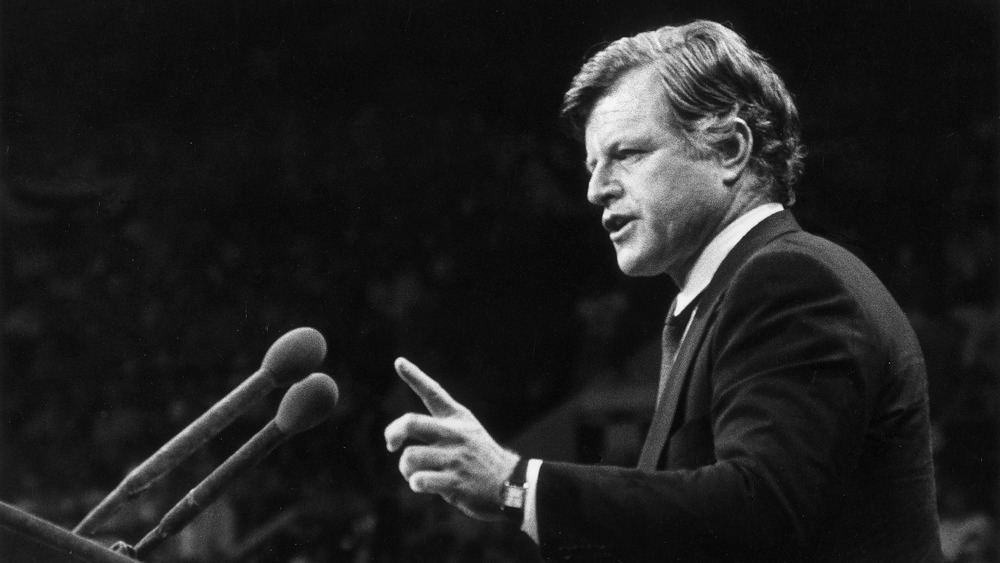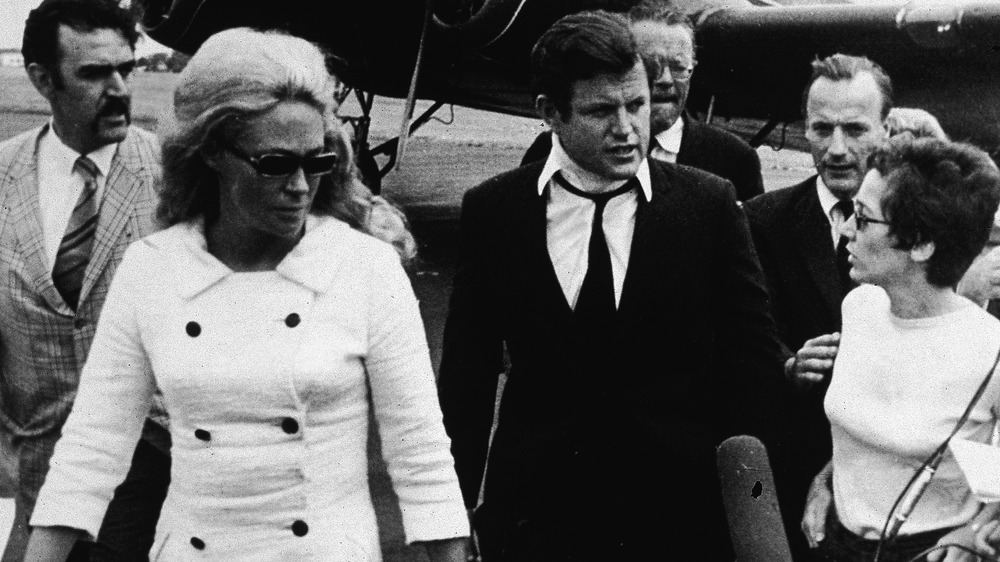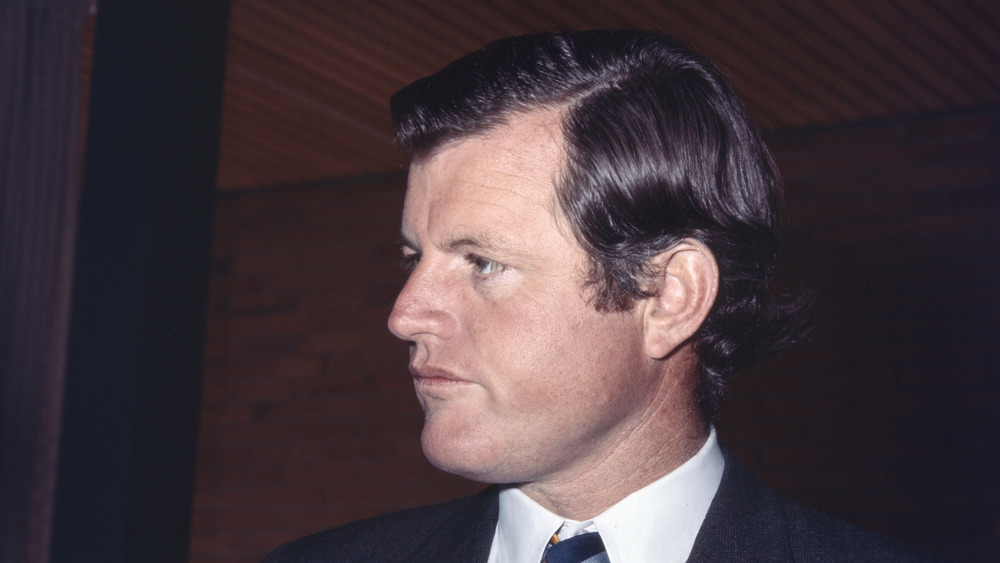Why Senator Ted Kennedy Never Served Time For His Crime
We may receive a commission on purchases made from links.
Near midnight on July 18, 1969, Senator Edward (Ted) Kennedy drove a Oldsmobile Delmont 88 off a narrow bridge on Chappaquiddick Island — a man-made extension off the resort island of Martha's Vineyard. Under just moonlight, the black sedan plunged into the cold dark waters of a large pond. And, although Kennedy survived with minor injuries, his passenger, 28-year-old Mary Jo Kopechne, did not. Unable to escape the car, she drowned clutching the car seat, according to USA Today.
News reports at the time shamefully referred to Kopechne as "a blonde," but she had become a respected political player and an important part of political operations for the Kennedy family. Kopechne volunteered for the campaign of John F. Kennedy while she was in college, and she worked on the presidential campaign of Robert F. Kennedy. Kopechne became known as one of the Boiler Room Girls, a name given to six women who worked on Bobby Kennedy's presidential campaign for the windowless room they worked in.
The night started off as a celebration
That fateful night in July 1969 was meant to be a celebration in honor of the Boiler Room Girls — a cookout to thank them for their hard work. Instead, it ended in tragedy as Ted Kennedy left with Kopechne shortly after 11 p.m., according to testimony [via The New York Times]. Kennedy said he made a wrong turn onto a road without a guardrail before going off the Dike Bridge and into the tidal Poucha Pond. He claimed he attempted to save Kopechne multiple times before returning to the cottage. With his cousin and his aide, Kennedy returned to the scene, but yielded no better results. He then went back to his hotel room and waited to report the matter to the police until 10 a.m. the following morning.
Too many questions remained. Was Kennedy drunk? Why did he seemingly flee the scene? Why did he wait so long to report the accident? And what were the two doing together in the car alone anyway?
In a speech the following week, Kennedy insisted he had not driven drunk, and that there was nothing improper about his relationship with Kopechne. "There is no truth, no truth whatever to the widely circulated suspicions of immoral conduct that have been leveled at my behavior and hers regarding that evening," said Kennedy, according to Jack Olsen's The Bridge at Chappaquiddick. Instead, he said he suffered a concussion and had ill judgement out of shock and confusion.
Police were unable to find evidence
Although there was evidence of an accident and there was a death, police struggled to find much of anything to charge Kennedy with. For involuntary manslaughter, they would have had to determine he was speeding or driving under the influence of alcohol. Because Kennedy didn't report the accident until the next morning, they were unable to test his blood alcohol level. The police had no other evidence and there were no eyewitness accounts. In the end, Kennedy pled guilty to the charge of leaving the scene of the accident for which he received a two-month jail sentence and a temporary driver's license suspension, according to Vanity Fair. He served no time.
Decades after the accident, Kennedy wrote in his memoir, True Compass, that his actions on the night of the accident were "inexcusable," and that he "made terrible decisions." He also noted he never addressed the press on the matter. He added: "I knew that once I started, I would be forced to engage in a back-and-forth on every allegation, no matter how ludicrous or impossible."


